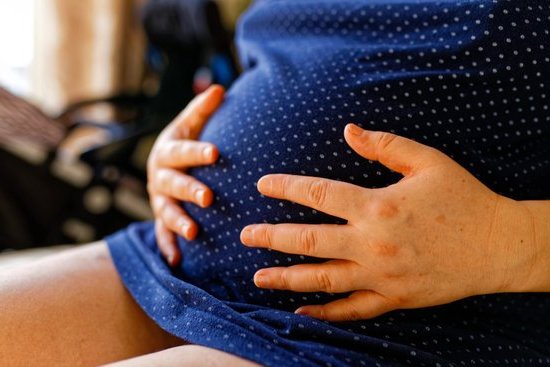Are you eagerly waiting to find out if you’re pregnant? One of the burning questions on your mind might be, “how early to take pregnancy test?” Understanding the menstrual cycle and ovulation is crucial in determining the best time to take a pregnancy test.
There are also important signs and symptoms of early pregnancy to look out for, as well as different types of pregnancy tests available. This article will guide you through all the necessary information needed to understand how early to take a pregnancy test.
The menstrual cycle and ovulation play a vital role in determining when it’s best to take a pregnancy test. By understanding these processes, individuals can pinpoint the most accurate time to test for pregnancy. Additionally, being aware of the signs and symptoms of early pregnancy is essential in recognizing when it may be time to take a test.
There are various types of pregnancy tests available on the market, each with their own unique features and levels of accuracy. Understanding how these tests work can further aid individuals in making informed decisions about when it’s best to take them. It’s also important to consider factors that can affect the accuracy of a pregnancy test, as well as tips for obtaining reliable results.
Signs and Symptoms of Early Pregnancy
When a woman suspects she may be pregnant, it’s important to be aware of the signs and symptoms of early pregnancy. These can vary from person to person, but there are some common indications that may point to a possible pregnancy.
Some common signs and symptoms of early pregnancy include:
- Missed period
- Nausea or vomiting (also known as morning sickness)
- Breast tenderness
- Fatigue
- Frequent urination
- Cravings or aversions to certain foods
- Mood swings
It’s important to note that these symptoms can also be associated with other conditions, so it’s best to take a pregnancy test for confirmation if any of these signs are present. Which leads us to the question: how early should you take a pregnancy test?
The Earliest Possible Time to Take a Pregnancy Test
The earliest time to take a pregnancy test largely depends on the type of test being used and the sensitivity of the test in detecting human chorionic gonadotropin (hCG), the hormone produced by the placenta after implantation. Generally, most over-the-counter urine tests can detect hCG levels around the time of your missed period.
However, some tests claim they can detect pregnancy even earlier than that, sometimes up to six days before your missed period. Keep in mind that the accuracy of these early detection tests may vary, and it’s always best to follow the manufacturer’s instructions for optimal results.
Factors such as irregular periods, fertility medications, and medical conditions can also affect when hCG becomes detectable in urine, so if you’re unsure about when to take a test based on your unique situation, it’s recommended to consult with a healthcare professional for guidance.
Different Types of Pregnancy Tests Available
When it comes to finding out if you’re pregnant, there are several different types of pregnancy tests available on the market. Understanding the differences between these tests can help you make an informed decision about which one to use. Here are some of the most common types of pregnancy tests:
- Urine Tests: These are the most widely used type of pregnancy test and can be easily done at home. They work by detecting the presence of hCG in your urine, which is a hormone produced during pregnancy.
- Blood Tests: A blood test for pregnancy is typically done at a doctor’s office and can detect pregnancy earlier than a urine test. There are two types of blood tests: quantitative and qualitative. A quantitative blood test measures the exact amount of hCG in your blood, while a qualitative blood test simply confirms whether or not hCG is present.
Understanding how these different types of pregnancy tests work can help you decide which one is best for your particular situation.
How Pregnancy Tests Work
Once you’ve chosen a type of pregnancy test, it’s important to understand how they work. Whether it’s a urine test or a blood test, all pregnancy tests function by detecting the presence of hCG in your body. This hormone is produced once a fertilized egg implants in the uterus, making it a reliable indicator of pregnancy.
Here’s how each type of pregnancy test works:
- Urine Tests: These tests usually involve holding a stick in your urine stream or dipping it into a sample of your urine. The stick then shows either one line (not pregnant) or two lines (pregnant).
- Blood Tests: A healthcare provider will draw blood from your arm and send it to a lab for testing. The results will indicate whether hCG is present in your bloodstream.
Understanding the mechanics behind each type of pregnancy test can give you more confidence when using them to determine if you’re pregnant.
How Pregnancy Tests Work
Pregnancy tests are an essential tool for women who suspect they may be pregnant, but it’s important to understand how they work in order to use them effectively. Most pregnancy tests utilize the detection of the hormone hCG (human chorionic gonadotropin) in urine to determine whether a woman is pregnant or not. This hormone is produced by the placenta shortly after a fertilized egg attaches to the uterine lining, and its levels increase rapidly in early pregnancy.
When it comes to understanding how pregnancy tests work, it’s crucial to know that different types of pregnancy tests can vary in sensitivity. Some tests are designed to detect lower levels of hCG, which means they can provide accurate results earlier than others. For example, some at-home pregnancy tests claim to be able to detect hCG levels as low as 20 miU/ml, allowing for testing as early as four days before your expected period.
However, it’s also important to note that even with these highly sensitive tests, accuracy can still be affected by taking the test too early. In fact, there’s no specific guarantee that taking a pregnancy test sooner rather than later will yield a more accurate result. Factors such as irregular ovulation or implantation bleeding can impact when hCG becomes detectable in a woman’s urine, making the “right” time for testing difficult to predict.
It’s clear that understanding how early to take a pregnancy test is crucial for obtaining accurate results. While some highly sensitive at-home pregnancy tests claim they can accurately detect pregnancy just a few days after conception, factors such as individual hCG levels and implantation timing can still affect accuracy. Therefore, it’s recommended to wait until at least the first day of your missed period for the most reliable results.
The Earliest Possible Time to Take a Pregnancy Test
Many women eagerly anticipate the earliest possible time to take a pregnancy test in order to confirm whether or not they are expecting. Understanding when it is feasible to take a pregnancy test can help alleviate some of the anxiety and uncertainty that often accompanies the early stages of pregnancy.
Understanding the Menstrual Cycle and Ovulation
The timing of taking a pregnancy test is closely linked to a woman’s menstrual cycle and ovulation. In a typical 28-day menstrual cycle, ovulation usually occurs around day 14. However, every woman’s cycle is different, so it is important to track menstrual patterns and identify when ovulation is likely to occur. This can help determine when it is appropriate to take a pregnancy test for accurate results.
The Earliest Possible Time
For those who are eager to find out if they are pregnant as soon as possible, there are early detection pregnancy tests available on the market. These tests claim to provide accurate results as early as six days before a missed period. However, it is essential for women to understand that the accuracy of these early tests may vary, and there is still a chance of receiving a false negative result.
Factors That Can Affect Accuracy
Various factors can affect the accuracy of a pregnancy test, including irregular periods, fertility drugs, and certain medical conditions. Additionally, taking the test too early or late in the day can also impact its accuracy. It is crucial for women to consider these factors when deciding how early to take a pregnancy test in order to obtain reliable results.
Factors That Can Affect the Accuracy of a Pregnancy Test
When taking a pregnancy test, it is important to consider the factors that can affect its accuracy. Several elements can impact the reliability of a pregnancy test, resulting in either a false positive or a false negative result. Understanding these factors can help individuals make informed decisions about when and how to take a pregnancy test.
Timing of the Test
The timing of the pregnancy test can significantly impact its accuracy. It is crucial to wait until after a missed period to take a home pregnancy test for the most reliable results. Testing too early may result in a false negative, as the body may not have produced enough hCG (human chorionic gonadotropin) – the hormone detected by pregnancy tests – to be detected at that time.
Quality of the Test
The quality of the pregnancy test itself is another factor that can affect its accuracy. While most over-the-counter tests are highly reliable, using expired tests or not following the instructions properly can lead to inaccurate results. It is important to check the expiration date on the package and carefully follow all instructions when taking the test.
Medical Conditions and Medications
Certain medical conditions and medications can also affect the accuracy of a pregnancy test. Conditions such as polycystic ovary syndrome (PCOS) or certain fertility treatments can cause elevated levels of hCG, potentially resulting in a false positive. Additionally, some medications, such as those used in fertility treatments or certain drugs used for anxiety and depression, can interfere with hCG levels and affect the results of a pregnancy test.
Understanding these factors can help individuals determine when and how to take a pregnancy test for the most accurate results possible. If there is any uncertainty about when to take a pregnancy test or if there are concerns about its accuracy, it is always best to consult with a healthcare professional for guidance.
Tips for Taking a Pregnancy Test
When it comes to taking a pregnancy test, timing is key. Most pregnancy tests are designed to detect the presence of the hormone hCG in your urine, which is only produced once a fertilized egg implants in the uterus. It’s important to wait until there is enough hCG in your system for the test to accurately detect it. But how early is too early to take a pregnancy test?
One of the most sensitive at-home pregnancy tests can detect hCG levels as low as 6.5 mIU/ml, which means they may be able to provide accurate results as early as 6 days before your missed period. However, experts generally recommend waiting until the first day of your missed period for the most accurate result.
It’s also important to note that the earlier you take a pregnancy test, the higher the chance of receiving a false negative result. This is because your body may not have produced enough hCG for the test to detect, even if you are pregnant. If you receive a negative result but still suspect you may be pregnant, wait a few days and retest with your first morning urine when hCG levels are more concentrated.
What to Do if the Pregnancy Test Is Negative
If the pregnancy test is negative, it can be disappointing and confusing, especially if you have been trying to conceive. It’s important to remember that a negative result does not necessarily mean you are not pregnant, especially if you took the test too early.
If you receive a negative result on a pregnancy test, it may be because it is still too early to detect the hCG hormone in your urine. The hCG hormone is produced once the embryo implants into the uterine wall, and it takes time for levels to rise high enough to be detected by a pregnancy test.
This is why it’s important to wait at least until the first day of a missed period before taking a pregnancy test for accurate results.
It’s also possible that you ovulated later than usual, which would delay the start of your period and also delay when a pregnancy test would be able to accurately detect hCG levels. If you suspect this might be the case, consider waiting a few more days before taking another test.
Additionally, certain medications or medical conditions can affect your menstrual cycle and impact the accuracy of a pregnancy test. If in doubt, consult with your healthcare provider on how early to take a pregnancy test and discuss next steps.
What to Do if the Pregnancy Test Is Positive
If you have taken a pregnancy test and the result is positive, it is natural to feel a range of emotions including excitement, surprise, or even anxiety. It is important to remember that a positive pregnancy test is not definitive proof of pregnancy and it is recommended to confirm the results with a healthcare professional.
Once you have received confirmation from a healthcare provider, there are several steps you can take to ensure the health and well-being of yourself and your baby.
The first step after getting a positive pregnancy test is to schedule an appointment with an obstetrician or midwife for prenatal care. Prenatal care is crucial for monitoring the health of both the mother and the developing baby, as well as providing recommendations for nutrition, exercise, and overall wellness during pregnancy. Early prenatal care also allows for screening and testing for any potential complications or risks that may require additional attention.
In addition to seeking prenatal care, it is important to begin taking prenatal vitamins if you have not already been doing so. Prenatal vitamins contain essential nutrients such as folic acid, iron, and calcium that are important for the healthy development of the baby. It is also advisable to make any necessary lifestyle changes such as avoiding alcohol, quitting smoking, and discussing any medications or supplements with your healthcare provider.
Finally, reaching out to loved ones or joining support groups can provide emotional support during this significant life change. So knowing how early to take pregnancy tests can help you make informed decisions when planning for your future.
Conclusion
After considering the different types of pregnancy tests available and understanding how they work, it is important for women to know the earliest possible time to take a pregnancy test. The timing of taking a pregnancy test is crucial in order to obtain an accurate result. It is generally recommended to wait until at least the first day of a missed period before taking a pregnancy test, as this will increase the chances of obtaining an accurate result.
However, for women with irregular periods or those trying to conceive, it may be challenging to determine how early to take a pregnancy test. In such cases, it may be helpful to track ovulation and wait at least 18-21 days after having unprotected sex before taking a test.
Additionally, some early detection pregnancy tests claim to provide accurate results up to 6 days before a missed period, but it’s important to keep in mind that these tests may not always be reliable at detecting very low levels of pregnancy hormone in the early stages.
Ultimately, after taking a pregnancy test – whether it’s positive or negative – there are important next steps to consider. If the test is negative but you still suspect you might be pregnant due to symptoms or irregularities in your menstrual cycle, it’s important to consult with a healthcare professional. And if the test is positive, seeking prenatal care and discussing next steps with a healthcare provider is crucial for ensuring a healthy and safe pregnancy journey.
Frequently Asked Questions
How Soon Will a Pregnancy Test Read Positive?
A pregnancy test can read positive as early as 10 days after conception, but most tests recommend waiting until the first day of a missed period for accurate results. This typically falls around 2-4 weeks after conception.
Can You Detect a Pregnancy at 1 Week?
It is highly unlikely to detect a pregnancy at just 1 week after conception. At this very early stage, it’s unlikely that a home pregnancy test will be sensitive enough to pick up on the low levels of hCG hormone in the body.
How Soon Can You Effectively Take a Pregnancy Test?
Most pregnancy tests on the market claim to be able to detect pregnancy as early as the first day of your missed period. However, for the most accurate results, it is recommended to wait at least one week after a missed period to take a pregnancy test for best effectiveness and accuracy.

Welcome to my fertility blog. This is a space where I will be sharing my experiences as I navigate through the world of fertility treatments, as well as provide information and resources about fertility and pregnancy.





